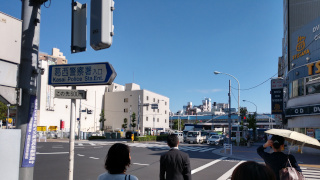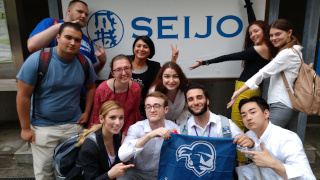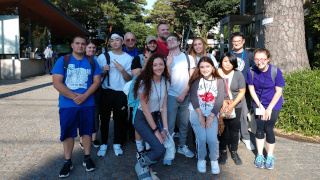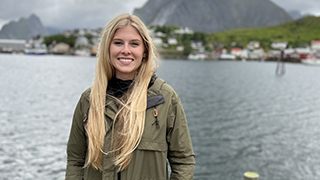Undergraduates Explore the Education System in Tokyo
Monday, June 10, 2019


In addition to school visits, the study abroad students took part in cultural and historical excursions around the Tokyo metropolitan area. They took a morning bus tour of Tokyo, stopping at the Imperial Palace, Tokyo Tower, and the Asakusa neighborhood. They visited Hamarikyu Gardens, a Japanese garden park dating back to the 1700s. They took a river taxi up the Sumida River to visit Tokyo Sky Tree Tower, currently the tallest structure in the country. On Sunday, the group visited the Edo-Tokyo History Museum and the Akihabara Electric Town district. Some in the group also attended Catholic Mass, which was celebrated in Japanese. Outside of the school visits, a definite highlight for the students was the evening visit to Tokyo Disneyland.
Throughout the trip, the students were encouraged to identify relationships between the educational system in Japan and wider Japanese society. On a regular basis, students posted their observations in real-time on Twitter using the tag #shupan19. For their final course assignment, students wrote brief academic papers recounting what the study abroad experience had taught them about (a) comparative education studies, (b) Catholic Social Teaching, and (c) intercultural competence.

Reflecting on the study abroad trip, course co-instructor Pfr. Daniel Aronoff commented, "The students had an opportunity to interact with a wide range of Japanese students, faculty members and citizens which helped SHU students develop an understanding and appreciation of Japanese culture. This, in turn, helps foster a deeper understanding of other cultures and the importance of their roles in a global society." Dr. Tatsuya Isono, Seijo University faculty and volunteer liaison, conveyed what the school visits meant to his students: "The Seijo University students who attended the meet-and-greet or who saw SHU students in their classes could gain much information and enjoyed the intercultural communication. I'm sure our students learned a lot from this experience."
The EDST 3900/CORE 3882 course is to be offered each Spring semester to all Seton Hall undergraduate students. The course can be counted toward the University Core III: Engaging the World course requirement. Activities promoting the course will take place during the fall semester. In the meanwhile, all questions about the course and the study abroad trip can be directed to Dr. Bryan Meadows, EDST assistant professor at (973) 275-2539 by phone; [email protected] by email; and @Meadows_SLTE on Twitter.






